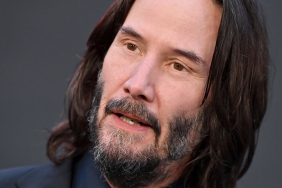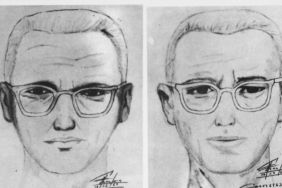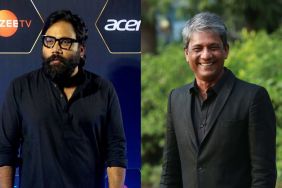
Last week I finally had a chance to have a conversation with W. screenwriter Stanley Weiser. We had actually planned on having the interview just prior to the release of the film, but as it turned out schedules don’t always work in your favor. Nevertheless, that doesn’t make what was said any less interesting.
Weiser is the man behind Wall Street and W. He aided Oliver Stone on Nixon and wrote a treatment for Wall Street 2 before Stone and the film’s producer decided to part ways. This interview will be of interest to anyone that finds any of those films intriguing. Anyone interested in politics and in learning what part in W. Stone himself was going to play before being talked out of it.
The interview was a long, exclusive 51-minute conversation examining the movie, it’s motivations and its expectations. We also touch upon our current state of affairs. While it was hard to be 100% honest with Stanley about my true feelings about W. (my review here) I think it helped the conversation since I was.
I followed W. from its inception. I reviewed the script and talked about the movie as much as I could. Ending my coverage with an interview with screenwriter, Stanley Weiser was icing on the cake and I think you will enjoy it.
As you read, if there is a book referenced I link to it, but you can get the full guide to the truth behind W. right here if you are interested.
Let’s begin…
Did the film live up to your expectations?
Stanley Weiser (SW): It did meet my expectations, but the expectations didn’t even really exist it happened so fast. I started writing the script in April 2007 so I didn’t have much time to think about how it would turn out because there was always problem solving to do, but I think Oliver did a great job.
I do wish there was a little more humor, which was left on the table. But he got more out of the performances than I could have ever imagined. So, yes, it definitely lived up.
I was actually sorry to see the swearing removed because it felt like when you take a great comedian and give them a show on the WB. All the edge is taken out of that comedian’s performance and I felt the same thing happened here. Not to say I think swearing is necessary, but the edge and impact it provided was missing.
SW: Yes, it bothered me.
When you take out when Bush goes, “I don’t like motherfuckers who gas their own people? I don’t like assholes who lie to the world? Did you tell her I’m going to kick his sorry motherfucking ass all over the Mideast?”
That ruins the joke.
That’s funny you mention that quote, because I have it right here in my notes because I didn’t want to overlook it, with “Helen Thomas” in bold.
SW: It bothers me. Believe me when I see it that’s what I’m talking about. When you ask me if I regret something, it’s losing certain humor, raucous humor, and that’s an example and I don’t know what happened there. That’s a real line and was challenged by Ari Fleischer, but it’s in the [Michael] Isikoff book on page 3 of “Hubris“. Isikoff sourced that. So, I was disappointed. It’s a little thing, but the whole scene leads up to the fact that this guy is talking major trash as if he is going to kick somebody’s ass next door and I’m with you, it bothers me.
Unfortunately it’s a situation where you’re damned if you do and damned if you don’t because people were challenging the language used after reading the script.
SW: I know, you can’t win, you can’t win. You always do the best you can.
After I saw it I couldn’t help but feel sorry for Bush. Was that the intention?
SW: I think a lot of people feel more sorry for the state of the world than they do for him when they come out. The joke is on us, we let a buffoon run our country.

Dick Cheney almost comes off as leading Alexander the Great or even Hitler toward global domination, something I actually think he says in the Sit Room at one point. How many assumptions did you have to make about the war room dialogue?
SW: That’s the one scene that Oliver wrote, and it’s a pivotal moment and he did a great job in that scene, but Cheney did say in the book “Angler” – he talked about transporting democracy to Iraq in private, but he knew that democracy would not work in Iraq. So he know they would have to stay. He was selling democracy, but he knew it couldn’t work.
Do you think the American public would have been more accepting of war in Iraq if Cheney/Bush had just said, “They have the oil. We need it.”
SW: I think Congress, at that point, would have went ballistic and there would have been such a human cry it would have stopped them.
Are you at all surprised they didn’t just plant WMDs and say, “Look, there they are!”
SW: Hey, that’s a good one. I never thought about that. That’s the first time I ever thought about that. I’m surprised – you could have been on their team and saved the day!
Yeah, I should have been in the War Room.
SW: [laughing] But he did have skullduggery when he wanted to paint US planes in UN colors and provoke them to shoot them down, but yeah, if he was smarter he would have planted something.
I was browsing through the 83-point guide of the film online and was wondering, what percentage of this film would you say is fact vs. fiction?
SW: I’d say about a quarter of the dialogue is Bush in the movie. Yeah,
For instance, I made up a line – Here’s an example of how you make up a scene. Cheney is seen with David Kay when they’re talking about how he is desperately grasping at straws trying to find these WMDs. He says, “We sent you these photographs of these trenches and Kay never got back to us.” Kay said, “No, those were cattle.” The line I invented was Bush saying, “You grew up in Wyoming Dick, you should damn well know cattle.” That’s a made up line, but basically the scene really happened where Cheney was upset.
I’m just curious Brad, how did you think the script turned out in relation to the movie? Because you’re one of the few people that read it and talked about it.
I have to be honest, I thought the movie was boring compared to the script.
SW: You did?
Yeah, I felt everything that was entertaining about the script was taken out in an attempt to make it a PG-13 film.
SW: What happens is, when you write a script you lose perspective, but I thought there was a lot of gravitas that was brought to the film that some people may perceive as boring, but there are a lot of different reactions. A lot of people feel shocked walking out.
It’s like I said though, after reading the script I think I ruined it for myself. I had something of an unhealthy obsession for this film.
SW: When you read it there are no surprises, the only surprises are what’s missing.
Yeah, like some of the Rove stuff.
SW: I regret we didn’t get the Rove scene in there where he baited Ann Richards to help win. What happened is, when you shoot so fast and the budget is so small it was done like a guerilla film and certain scenes were lost and certain scenes were cut out because they couldn’t fit. It was like doing independent, guerilla film and a lot of things worked better but some things were left out.
Even the “Is our children learning” line was rushed.
SW: It was rushed, you’re right, you’re very perceptive. I don’t get that, I don’t understand why it was rushed.
I think what happened is Josh Brolin is a fanatical student of truth and he probably looked at the real speech and that’s probably how Bush said it. Because I know he studied real speeches.
It’s funny you should mention that, though, that line bothers me because it is rushed and there is also that speech at the end. Because I know Josh studied that speech, but I was saying, “There needs to be longer pauses and you’re not doing it the way it was written.”
Then they showed me the real speech and I realized they were right, he doesn’t pause the way he would if he were delivering a punchline. I miss that, but I can say what Brolin was trying to do.
Even though that scene may not be funny, it is effective in showing the clueless nature of the man.
SW: I agree with you Brad, the film not being what the script presented. But at one point Oliver Stone wanted to play Saddam Hussein, not many people know this, he had to be talked out of playing Saddam Hussein. Saddam is supposed to be sitting next to him when Bush is choking on a pretzel saying, “You Americans and your crazy football,” and doing prayers and stuff. That would have been outrageous and funny, but it would have taken you out of the movie.
Were you already working on this or did Stone approach you?
SW: Here’s an interesting story, I was working on Wall Street 2 and [Oliver] had a falling out with the producer and we stopped on Wall Street 2 and several months later he came back and said, “Let’s do a story about Bush.” And I came up with the take, coming up from two different tracts from a path to war to his past to his relationship to his father and God trying to get out of the Iraq war. So I came up with the take and Oliver just said, “Go write it.”
The research must have been daunting.
SW: It was unbelievable. It was massive. I had an assistant, a guy named David Wilds, who helped me. We each read ten books, we underlined everything. It was a tremendous amount of research. That’s why – you can do the story a hundred different ways, but you never really cash in because the story isn’t over yet.
Was there ever an idea of going into present day?
SW: Well, I did write a scene that went into the present, but it didn’t work. When I wrote the original script, before the script you saw, I wrote a 161-page script that had 9/11, him winning the presidency — I hit a lot of bases that people may assume are missing, but it wouldn’t have worked because it would have made the movie three hours. It would have been impossible to release. You just can’t tell everything.
The film is rather sympathetic towards Bush Sr… is this a guy you and Oliver are more sympathetic towards?
SW: I’m not a fan of Bush Sr. either. Here’s the deal, I see Fahrenheit 9/11 as a great movie as a documentary and we’re not going to try and remake that because people would just say, “It’s already been done.” You can’t compete with a documentary, I knew that bar was too high to reach. My politics are way to the left and I wanted to keep my politics out of it to
What I was trying to get across in the movie is a story of a guy who is an abject failure, tries to redeem himself, finds God, uses God as a tool to elevate himself and prop himself up – and he believes in God – and yet he is hapless and clueless as a leader. And he becomes president of the free world and he makes every conceivable mistake possible and he’s a symbol of failure, but he meant to do well. I believe after doing all of my research that Bush wanted to do good, but he’s just incompetent.










